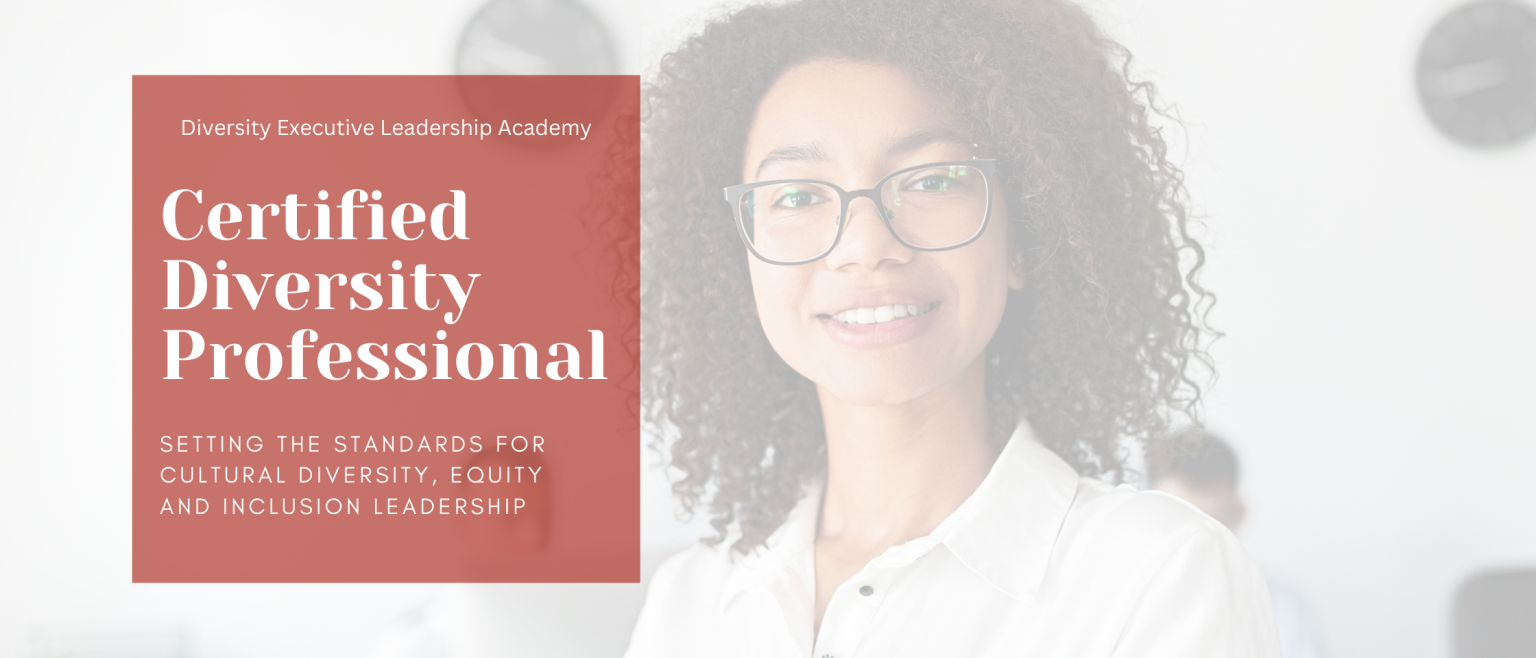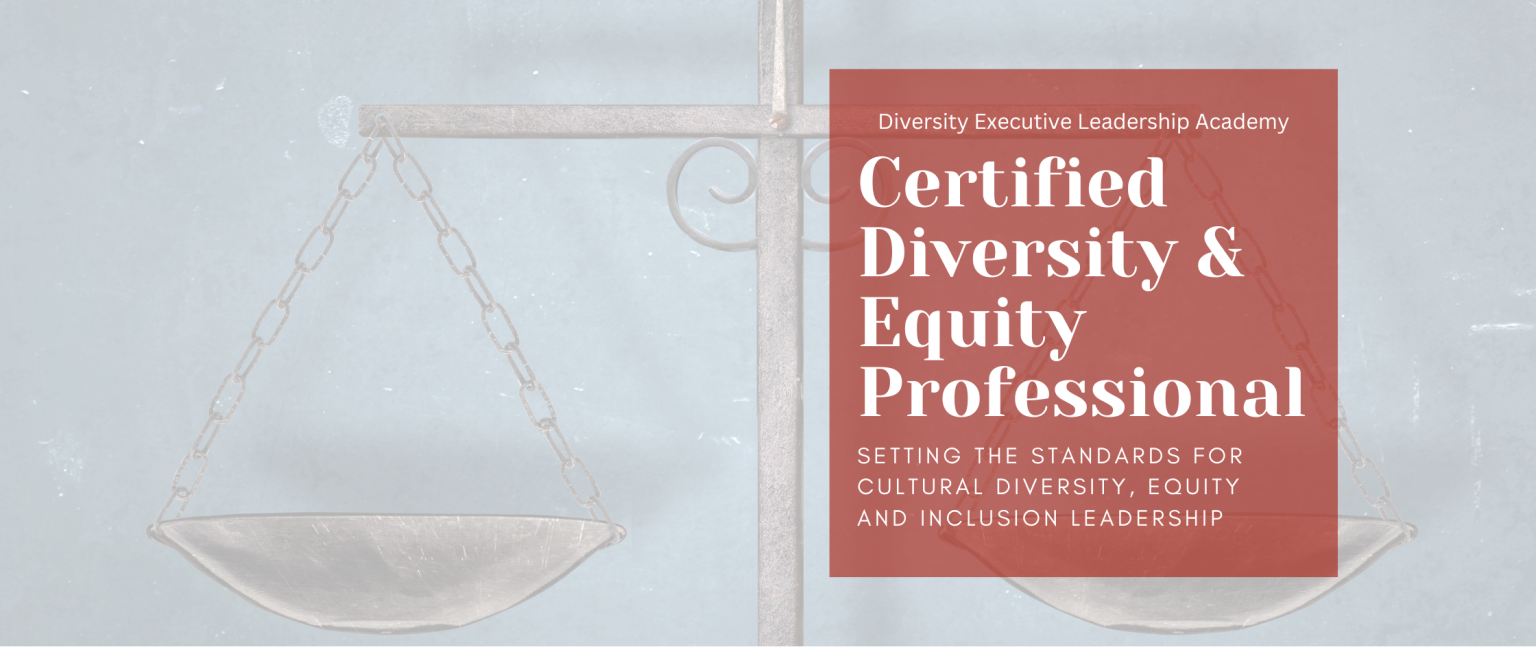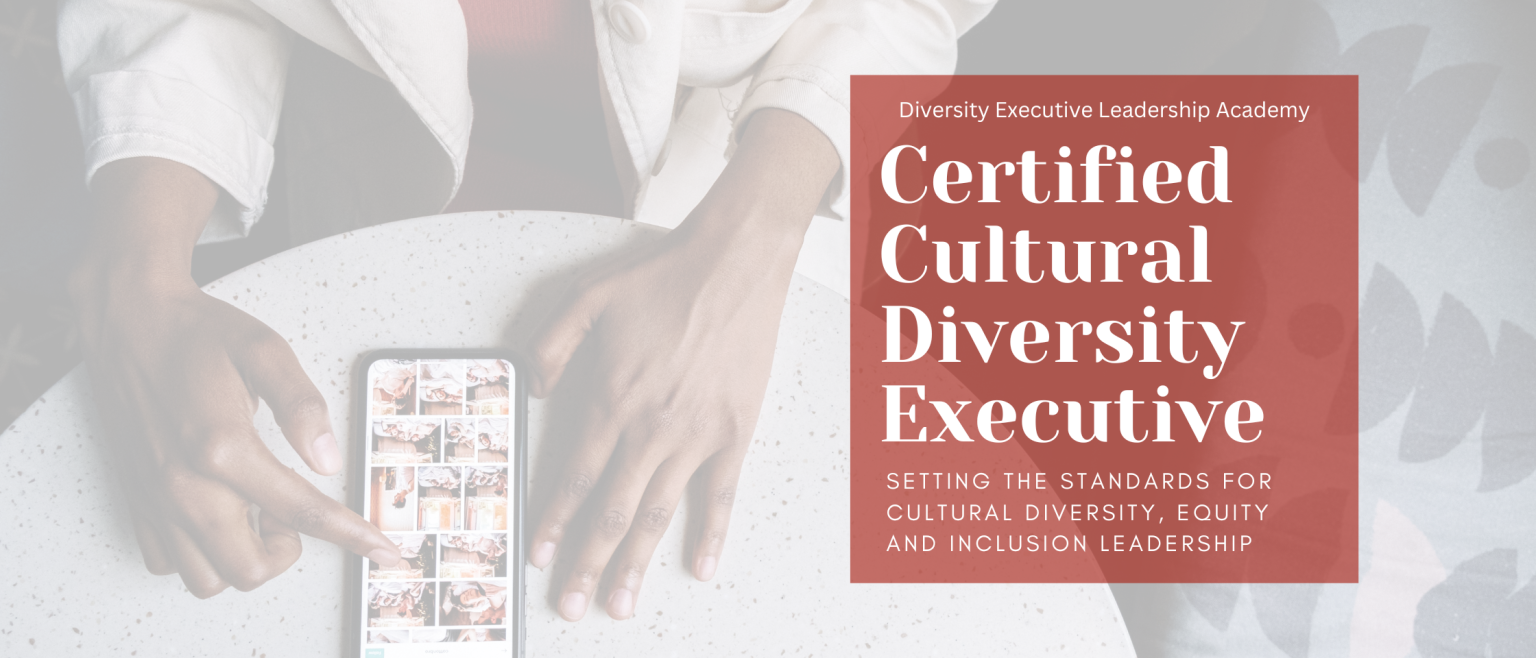
The Certified Diversity Professional certification is certification demonstrating an understanding of the fundamentals of creating cultural diverse, inclusive and productive organizations.The individuals seeking the training serve under a cultural diversity leaders such as the VP or Diversity & Inclusion, Chief Diversity Officer, or a human resource manager. The training courses offered in this certification program is ideal for individuals new to cultural diversity, equity, and inclusion or seeking credentials for continuing education and career advancement.
It has two formats:
Completion of two instructor led online courses or
Completion of one course, a portfolio of related professional work to date, and successfully passing an examination.
Graduates earn the CDP designation.















